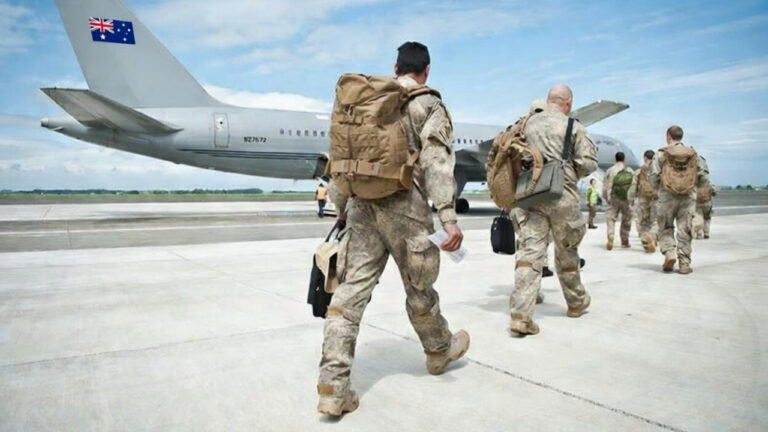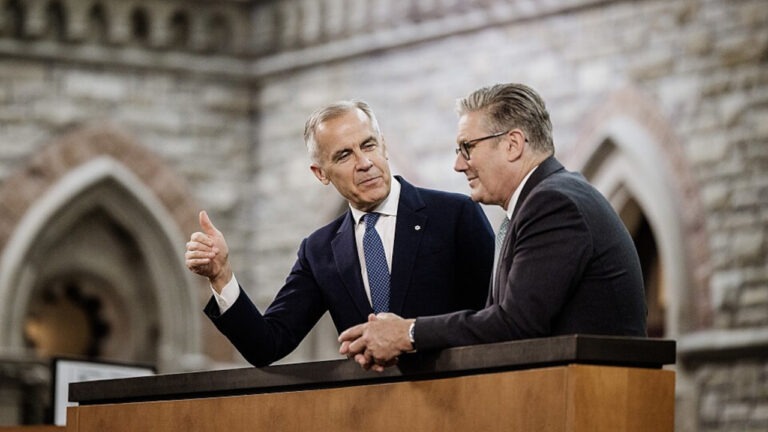
James Skinner
James is the Founder & Chief Executive of
CANZUK International in Vancouver, Canada
In response to growing concerns about China’s assertive claims in the South China Sea, Canada and Australia have committed to strengthening their military and defense industry cooperation.
This decision reflects a shared recognition of the challenges facing security in the Indo-Pacific region, as articulated by Canadian Defence Minister Bill Blair.
Blair noted that the current security landscape in the Indo-Pacific is increasingly complex, with various forces attempting to reshape the international system to serve their own agendas. The Canadian Minister emphasized that closer collaboration between Canada and Australia is crucial to maintaining stability in the region.
Blair noted that the current security landscape in the Indo-Pacific is increasingly complex, with various forces attempting to reshape the international system to serve their own agendas. The Canadian Minister emphasized that closer collaboration between Canada and Australia is crucial to maintaining stability in the region.
“We are committed to enhancing the interoperability of our armed forces and deepening our operational cooperation,” Blair stated during a press briefing in Vancouver in August, where he met with Australian Defence Minister Richard Marles.
The two ministers expressed particular concern over what they described as China’s excessive maritime claims in the South China Sea and its increasing military presence around Taiwan. Their remarks also came as the armed forces of the Philippines, Canada, the United States, and Australia conducted joint maritime exercises in the South China Sea, underscoring the importance of multinational cooperation in preserving regional peace.
Marles, who arrived in Vancouver following discussions in Washington, D.C., highlighted the importance of working together to prevent conflict through deterrence. Australia’s recent agreement with the United States to begin co-manufacturing guided weapons in the coming year further signals the deepening ties between allied nations in response to regional security challenges.
This enhanced cooperation between Canada and Australia can be seen as part of a broader alignment among nations that share a commitment to the rule of law, peace, and stability. Such partnerships are increasingly important in navigating the complexities of international relations in a rapidly changing world.
The steps taken by Canada and Australia could also serve as a model for the UK and New Zealand to pursue similar strategies of cooperation via CANZUK in support of common security interests.
The two ministers expressed particular concern over what they described as China’s excessive maritime claims in the South China Sea and its increasing military presence around Taiwan. Their remarks also came as the armed forces of the Philippines, Canada, the United States, and Australia conducted joint maritime exercises in the South China Sea, underscoring the importance of multinational cooperation in preserving regional peace.
Marles, who arrived in Vancouver following discussions in Washington, D.C., highlighted the importance of working together to prevent conflict through deterrence. Australia’s recent agreement with the United States to begin co-manufacturing guided weapons in the coming year further signals the deepening ties between allied nations in response to regional security challenges.
This enhanced cooperation between Canada and Australia can be seen as part of a broader alignment among nations that share a commitment to the rule of law, peace, and stability. Such partnerships are increasingly important in navigating the complexities of international relations in a rapidly changing world.
The steps taken by Canada and Australia could also serve as a model for the UK and New Zealand to pursue similar strategies of cooperation via CANZUK in support of common security interests.
Heading photo: GetArchive.net under Creative Commons License Public Domain Mark 1.0 Universal
Share this:
Facebook
Twitter
LinkedIn
WhatsApp
Email





